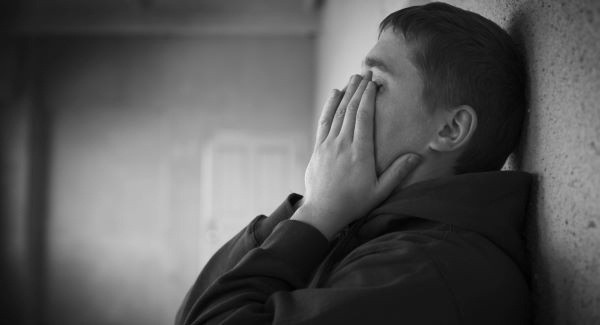Mental Health: Risk of Postnatal Depression in Young First-Time Fathers Rises by 68%

There has been a significant rise in cases of postnatal depression in men during the first five years of fatherhood, according to new research.
Symptoms of depression have increased on average by 68% over the initial five years after the birth of a child, among fathers around 25 years of age who lived with their children.
Craig Garfield, a professor in pediatrics at Northwestern University Feinberg School of Medicine, who led the study, said depression affects around 5% to 10% of fathers. Postnatal depression, otherwise known as postpartum depression, is estimated to affect around 10% to 15% of mothers.
Garfield said: "There has been a significant body of literature describing the effect of mother's depression on child development, and the health care system has tried to rise to the challenge of identifying mothers with depression."
He added that paternal depression had been largely overlooked until recently. "Now we know that right around the time of birth is an important time to try and capture and screen those dads," Garfield added.
Researchers collected data from 10,253 adolescent males enrolled in a national study examining social and behavioural health. The scheme began in 1994 and has followed the subjects for 20 years.
The study focused on 3,425 of the participants, who between 2004 and 2005, were fathers between the ages of 24 to 32. Around 80% of these fathers lived with their children.
Throughout the course of the survey, the men reported on symptoms of depression, including sadness, difficulty in concentration and an inability to enjoy life, via responses to a 10-question depression measuring scale.
Results revealed a significant rise in symptoms among fathers in the early years of fatherhood. In addition, researchers found that young fathers who did not live with their children showed an increase in symptoms in the years before entering fatherhood, but not during the first five years. Garfield said this result warranted additional research, but is not immediately significant because of the small sample size.
The effects of male postnatal depression show that fathers are more likely to use stricter punishment and show less interest in their children. In comparison with children of non-depressed fathers, these children are morely likely to have poor language and reading development, as well as behavioural problems. In 2011, previous research conducted by Garfield showed that depressed fathers were over three times more likely to spank their children, in a Fragile Families and Child Wellbeing Study.
Lisa Harvey, a professor of psychology at the University of Massachusetts-Amherst, told USA Today that greater depression during the transition into fatherhood was unsurprising. She said: "Young children require an enormous amount of care, and it can be stressful to juggle parenting, work, extra housework, all while getting less sleep. Having a child can also cause financial strain and difficulties in the couple's relationship."
© Copyright IBTimes 2025. All rights reserved.






















